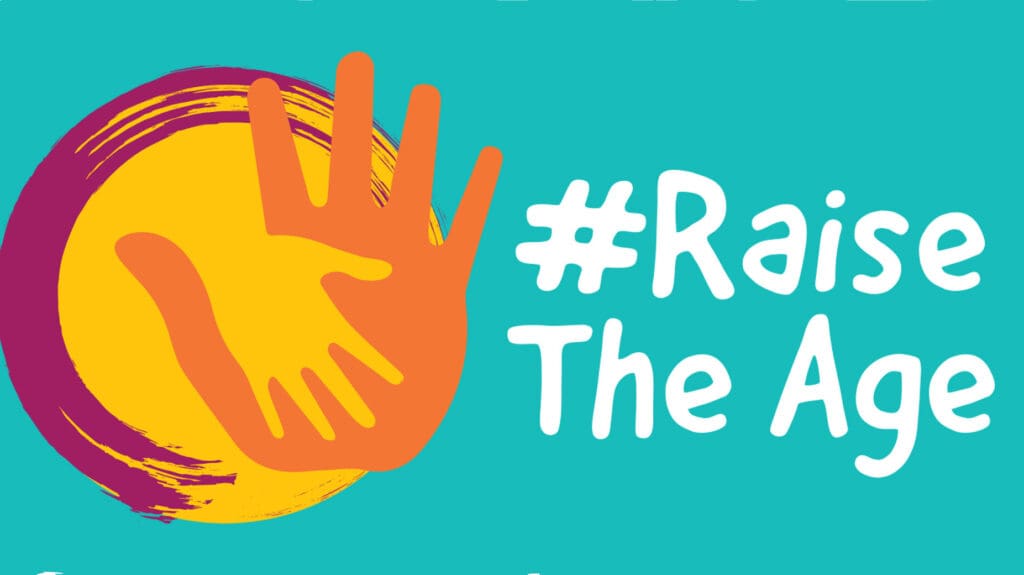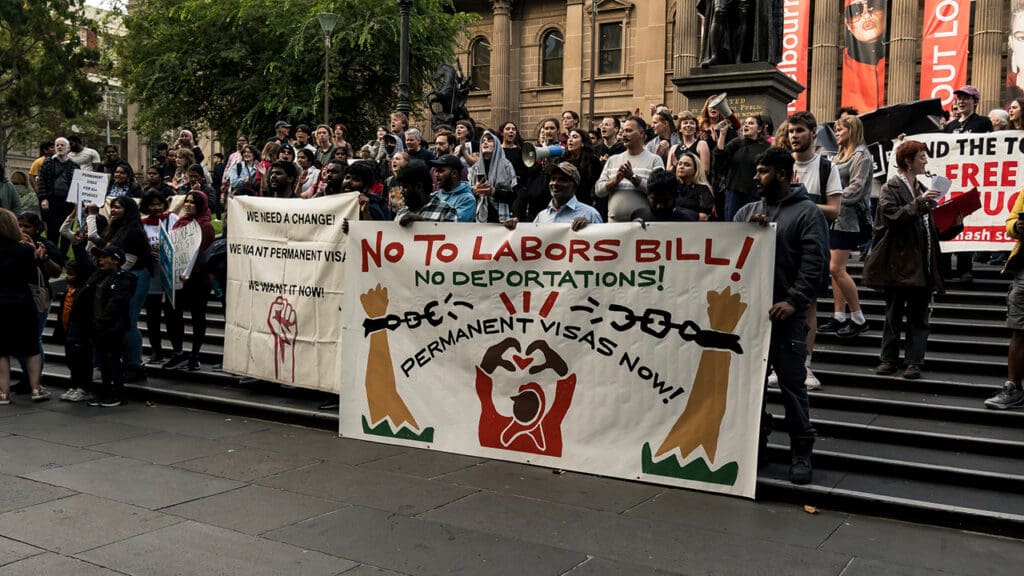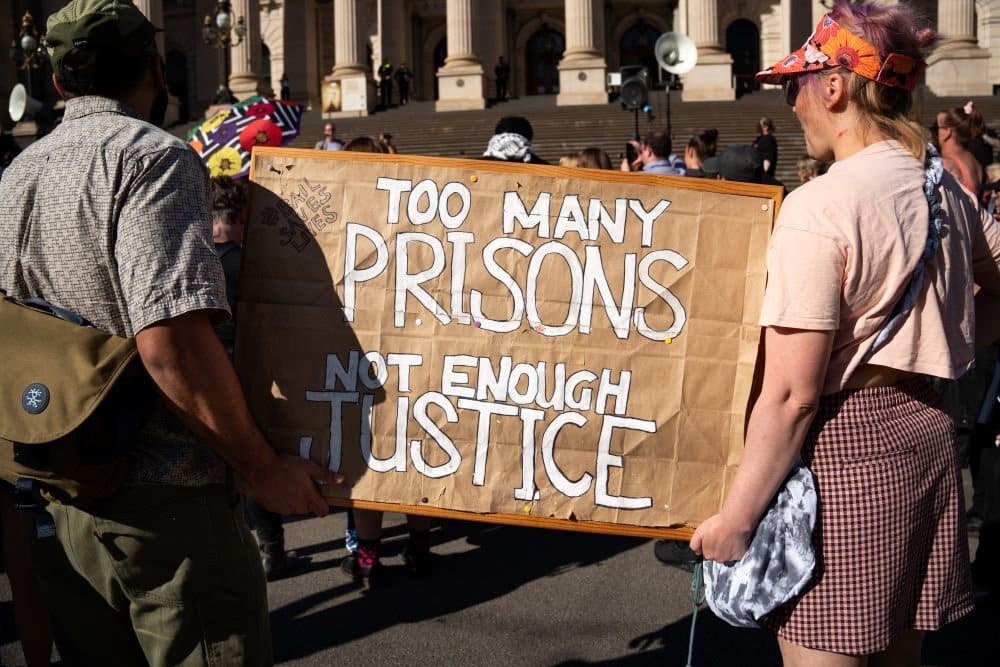Australia fails to address serious concerns in major UN review
The Australian Government’s response overnight at the UN in Geneva to a major review of its human rights record has failed to address the serious concerns raised by the international community.
The Human Rights Law Centre’s Director of Advocacy and Litigation, Anna Brown, said Australia’s punitive refugee policies, treatment of Aboriginal people and erosion of basic democratic freedoms were damaging Australia’s reputation ahead of its bid for of spot on the Human Rights Council – the body which conducted the 4 yearly review.
“The positives have once again been overshadowed by the Australian Government’s failure to take seriously the chorus of international criticism about the way we treat people seeking asylum,” said Ms Brown.
Australia accepted 150 of a total of 290 recommendations made by its peers in the international community at its four yearly review by the UN’s human rights council, the body that Australia is seeking election to in 2018.
However, the majority of these were on the basis of “existing law, policy and action” with only two notable new announcements – a consultation on business and human rights and removing a long standing reservation to the Convention on the Elimination of all Forms of Discrimination against Women (CEDAW) on women in the military. In its remarks to the Council overnight, Australia also highlighted the recent appointment of Philip Ruddock as Australia’s inaugural Special Envoy on Human Rights and other positive initiatives to address gender equality and family violence.
The HRLC and the National Association of Community Legal Centres (NACLC) are coordinating a coalition of nearly 200 organisations which prepared materials for UN member states and briefed representatives from various countries in Geneva ahead of the review. NACLC’s Director of Policy, Amanda Alford, welcomed the positive commitments made by Australian throughout the UPR process.
“We welcome the voluntary commitments made by Australia, particularly in relation to a public and accessible monitoring mechanism for recommendations made as part of the UPR. We hope it will help improve the extremely low implementation rate from Australia’s last UPR, which was 10%, but we need more information about what these commitments mean in reality and what steps the Government will take to implement them”
Asylum seeker & refugee issues
A large focus of the recommendations made back in November 2015 was Australia’s treatment of asylum seekers and refugees . The Refugee Council of Australia’s CEO Paul Power said that Australia has brushed off criticism from over 60 countries of its brutal policies and practice in its treatment of people seeking asylum.
“Australia’s treatment of people seeking safety and protection are a source of strong international condemnation, yet Australia has ignored the comments and recommendations from its peers, including many of our closest allies. Australia must do much better in order to restore its reputation as a good international citizen and a champion of human rights,” said Mr Power.
Aboriginal & Torres Strait Islander peoples
Australia’s record on Indigenous peoples was also a significant focus of the review, including wide spread concern on over-imprisonment, gaps in health outcomes and community services, and urging of progress on constitutional recognition. The National Congress of Australia’s First Peoples CEO Mr Geoff Scott, said that Congress was disappointed with the lack of genuine effort exhibited by the Australian Government to rectify the deprivation, poverty and disenfranchisement of Aboriginal and Torres Strait Islander Peoples.
“The Australian Government has neglected the principles of the UPR and shown a general disregard and contempt for improving human rights through this peer review process,” said Mr Scott.
“In contrast to the Australian Government’s stated commitments during this review, the Australian Government actively refuses to engage with the representatives of Aboriginal and Torres Strait Islander peoples and have defunded us,” added Mr Scott.
“For the UPR to be meaningful the process must be able to identify our legitimate concerns and have the ability to seek remedy for these continuing injustices,” added Mr Scott.
Over imprisonment and conditions of detention
Cheryl Axleby, Deputy Chairperson of National Aboriginal and Torres Strait Islander Legal Services (NATSILS), also expressed concern about the continuing failure to deal with the issue of over-imprisonment of Aboriginal and Torres Strait Islander peoples.
“We are greatly concerned that the situation for Aboriginal and Torres Strait Islander peoples continues to deteriorate – nowhere is this more obvious than in the catastrophic overrepresentation of our peoples in prisons,” said Ms Axleby.
“Leadership on this issue would include ratification of the Optical Protocol on the Convention against Torture, which would help safeguard the rights of people in prison, “added Ms Axelby.
Australia signed the Optional Protocol to the Convention against Torture and other Cruel, Inhuman or Degrading Treatment or Punishment (OP CAT) in 2009 but is yet to ratify the instrument and introduce associated reforms such as the independent monitoring of prisons. While progress has been made nationally towards the ratification of OP CAT in the past four years, final approvals are outstanding from two states in order for ratification to proceed.
Lesbian, gay, bisexual, transgender & intersex people
NGOs had previously welcomed the Australian Government’s commitment (made in the course of the UPR appearance in November) to removing exemptions for Australian state and territory laws from the operation of Australia’s national anti-discrimination laws. The Victorian Gay & Lesbian Rights Lobby’s Co-Convener Sean Mulcahy said that states and territories should take heed of this strong commitment and work to end laws that discriminate against LGBTI people immediately.
“We are thrilled that Australia has recognised families in all their diversity, including families headed by same-sex couples and LGBTI people. We hope this heralds a commitment by the Government to protecting and advancing the rights of rainbow families in national law,” said Mr Mulcahy.
“We are disappointed that the Government still insists on an unnecessary and harmful marriage plebiscite, and continue to call on the Government to allow a free vote on marriage equality within the Australian Parliament,” added Mr Mulcahy.
People with disability
The UPR Disability Coordination Group commended Australia’s voluntary commitment to improve the criminal justice system for people with disability who are detained indefinitely without conviction. The Group also welcome consideration of progressing supported decision making measures and the recommendations from the Senate Inquiry into violence, abuse and neglect of people with disability.
“This consideration must lead to action, and we urge the Government to adopt National Decision-Making Principles and Guidelines and to implement the recommendations from the Senate Inquiry, in particular the recommendation to conduct a Royal Commission into violence, abuse and neglect against people with disability,” said Ms Therese Sands, spokesperson for the UPR Disability Coordination Group.
However, Ms Sands said the disability sector remained deeply concerned that Australia would not consider further action on the prohibition of forced sterilisation, despite numerous recommendations over the past decade to do so from UN bodies and the international community.
Women
Women’s groups welcomed the removal of Australia’s reservation to the Convention on the Elimination of All Forms of Discrimination Against Women relating to the service of women in the military and action on gender equality and violence.
“We applaud the Australian government’s leadership in identifying gender inequality as a root cause of domestic violence and sexual assault, and we welcome the recent Women’s Safety Package,” said Merrindahl Andrews, Program Manager of the Australian Women Against Violence Alliance.
“However, there is an urgent need for additional and sustainable resourcing for the full range of programs and services that can support women and children, together with concerted efforts to empower women economically and give women accessible legal options,” added Ms Andrews.
Business & human rights
The Human Rights Law Centre’s Director of Advocacy & Campaigns, Rachel Ball, welcomed the Government’s commitment to undertake a consultation on the implementation of the UN Guiding Principles on Business and Human Rights,
“The consultation is an important first step towards a National Action Plan on Business and Human Rights which will enable Australia to better protect against adverse corporate human rights impacts and to provide remedies for those whose rights have been violated due to business-related activities,” said Ms Ball.
Anti-discrimination reform & access to justice
While Australia accepted recommendations to introduce measures to combat discrimination, community legal centres remain critical of the adequacy of Australia’s discrimination laws and funding for legal services.
‘The patchwork of discrimination laws isn’t enough to ensure that equality and a fair go for all exists in Australia. With the cuts in funding to community legal centres, over a third of all funding from July 2017 is being cut, the most disadvantaged people’s ability to make their legal rights real will be severely affected,’ said Kingsford Legal Centre’s Director Dr Anna Cody.
Additional references
Draft Report of the Working Group which contains the recommendations made to Australia.
Report of Australia in response to recommendations.
Watch Australia deliver it’s response on UN TV.
Oral statement by International Service for Human Rights and Human Rights Law Centre.
Oral statement by International Lesbian & Gay Association and Australian LGBTI organisations.
For further comments and queries please contact:
Amanda Alford, National Association of Community Legal Centres, 0421 028 645.
Merrindahl Andrews, Australian Women Against Violence Alliance, 0428 541 396.
Cheryl Axleby, NATSILS, (08) 8113 3777.
Rachel Ball, Human Rights Law Centre, 0434 045 919.
Anna Brown, Human Rights Law Centre, 0442 235 522.
Anna Cody, Director, Kingsford Legal Centre, 02 9385 9566.
Sean Mulcahy, Victorian Gay & Lesbian Rights Lobby, 0400 566 844.
Therese Sands, UPR Disability Co-ordination Group, 0412 935 128.
Geoff Scott, CEO, National Congress of Australia’s First Peoples, 0498 994 346.
Tim O’Connor, Refugee Council of Australia, 0431 147 366.

ACT becomes first jurisdiction to raise the age to 14 while the rest of the country lags behind
Change the Record and the Human Rights Law Centre welcome the ACT raising the minimum age of criminal responsibility to 14, and call for all Australian Governments to raise the age to at least
Read more
High Court challenge for man facing deportation to Nauru returns to court
The legal challenge brought by a man facing deportation to Nauru will return to the High Court for hearing today. The case was filed after the Albanese Government attempted to exercise its new third country deportation powers for the first time
Read more
Crisafulli Government’s shameful adult sentencing laws will harm kids, families, and communities
The Human Rights Law Centre and Change the Record have slammed the Crisafulli Government for passing laws that will sentence even more children to adult-length terms of imprisonment. The laws will lock up children for even longer, and harm kids, families, and communities.
Read more



